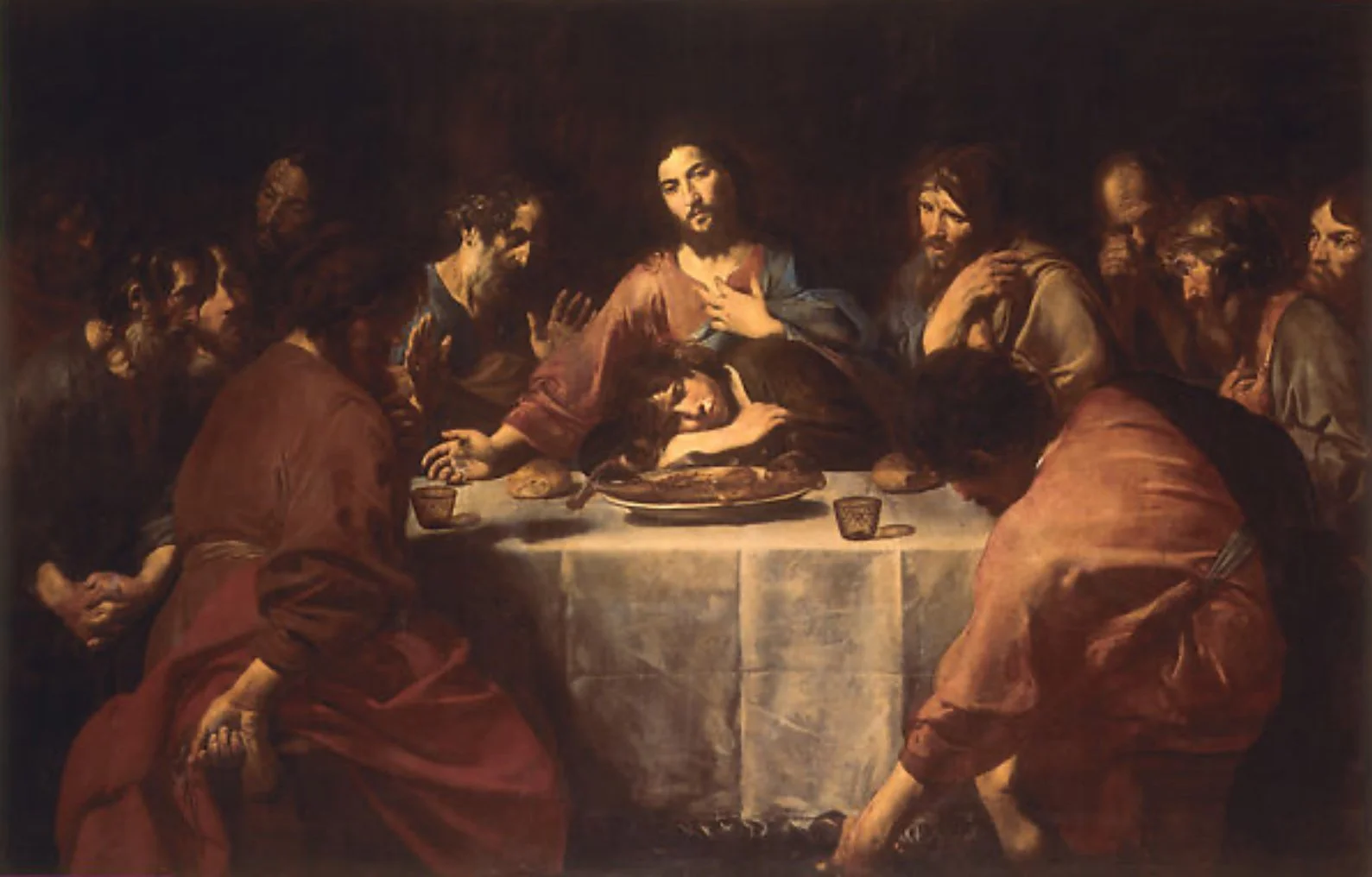Was John Calling Out Paul? A Scriptural Wakeup Call for the Modern Church
Bible Study | Testing the Spirits. Comparing the Fruit. Returning to the True Gospel.
Was John Exposing Paul? A Line-by-Line Wakeup Call
There’s a reason 1 John doesn’t read like a feel-good devotional. It’s not soft. It’s not vague. It isn’t filled with flowery language about grace and trying your best.
I know—because I got kicked out of a Bible study for reading it aloud. I shared 1 John with a group of Paul-lovers, hoping to point them back to Yahushua. Let’s just say… they weren’t ready. And apparently, neither was church leadership. Many aren’t.
1 John is sharp. It’s surgical. It draws hard lines between truth and lies, between righteousness and rebellion, between those who know Yahushua—and those who only claim to. It reveals the divide between those who like their sin and make excuses for it… and those who weep over their sin and beg Yahweh to tear it out by the root. Two kinds of people—and only one bears fruit.
And once your eyes are open, it becomes painfully clear: John was exposing someone.
He wasn’t writing into a vacuum. He wasn’t just teaching general truths for the future church to reflect on. He was standing guard. He was pushing back against a growing deception—a deception that had already begun corrupting the Gospel from within.
And who better fits that target than Paul?
John, who walked with Yahushua, who rested his head on His chest, who saw His glory with his own eyes—John is not confused about what it means to abide in Messiah. He knows sin. He knows holiness. He knows love. And he writes with clarity that slices through every fog of modern theology. He abides.
“No one who stays in Him sins. No one who sins has seen Him or known Him.”
(1 John 3:6)
That one verse alone is a direct contradiction to Paul’s Romans 7 confession. Paul admits, repeatedly, that he continues to do what he hates. That he is wretched. That he’s still enslaved to sin. That he can’t seem to do the good he wants. And this is not a pre-conversion account—this is how he describes his walk as a supposed apostle of Messiah. That’s not truth, that sad.
You are not wretched if you have Messiah in you!
And so, John says plainly: if you sin, you haven’t seen Him. You don’t know Him. Period.
This isn’t an isolated warning.
“If we say we have fellowship with Him and walk in darkness, we lie and do not do the truth.”
(1 John 1:6)
Paul teaches grace while continuing in sin. John says that’s a lie.
“The one who says, ‘I know Him’ and does not guard His commands is a liar, and the truth is not in him.”
(1 John 2:4)
Paul declares the law a “ministry of death” (2 Cor. 3:7). He diminishes Torah again and again. But John says if you don’t keep the commandments, you’re a liar.
“Little children, let no one lead you astray. The one doing righteousness is righteous, even as He is righteous.”
(1 John 3:7)
St John
| by Peter Paul Rubens ca. 1611
This isn’t a soft suggestion. It’s a line drawn in the sand. John knew false teachers were rising. He knew smooth talkers would creep in, excusing sin, twisting Scripture, claiming grace while denying obedience. So he says: let no one deceive you.
Not even the popular one.
Not even the one who claims visions.
Not even the one who says, “Follow me.”
John doesn’t name Paul. But he didn’t need to. The Spirit doesn’t always call names—it just brings light. And once the light shines, the fruit speaks for itself.
Paul was the only apostle teaching that sin still had power. That we would always struggle. That grace somehow coexisted with slavery. He confused what Yahushua made clear.
Yahushua said, “Go and sin no more.”
Paul said, “I do the evil I don’t want to do.”
“No one who stays in Him sins. No one who sins has seen Him or known Him.”
Yahushua said, “Be perfect, as your Father in Heaven is perfect.”
Paul said, “His strength is made perfect in my weakness.”
Yahushua said, “If you love Me, keep My commandments.”
Paul said, “You are not under the law.”
John said, “Let no one deceive you.” And he meant it.
What modern Christianity calls balance, John calls falsehood. What seminaries call tension, John calls lies. What churches call struggle, John calls proof that you haven’t known Him.
John is not writing against atheists. He’s writing against those who claimed to know Messiah, but didn’t live like Him.
So let’s ask the hard question: if John were writing today, would his letter still be read as comfort—or as confrontation?
Would the modern church accept his words, or label him legalistic?
Would those defending Paul be able to stomach what John actually said? Can you?
Because the truth is: if Paul is right, then John is wrong.
And if John is telling the truth—then Paul’s gospel is exposed.
Now let’s move on to Yahushua ha’Mashiach’s words and see who you believe…
Historical Confirmation: Early Church Fathers & Revelation Warnings
John didn’t just write warnings in his letters—he repeated them in Revelation. In Revelation 2:2, speaking to the assembly at Ephesus, Yahushua commends them, saying:
“I know your works, and your labor, and your endurance, and that you are not able to bear evil ones. And you have tried those who say they are apostles and are not, and have found them false.”
(Revelation 2:2, TS2009)
This is huge. The assembly at Ephesus—where Paul had great influence—is being praised by Yahushua for rejecting false apostles. Not simply heretics. Not unbelievers. False apostles.
And who was it that called himself an apostle without ever being chosen by Yahushua during His earthly ministry?
Only one: Paul.
He even defends his apostleship multiple times, as if constantly needing to prove it:
“Paul, an apostle—not from men nor through man, but through Yahushua Messiah…”
(Galatians 1:1)
But Yahushua said you’ll know them by their fruit.
And the assembly at Ephesus tested someone who claimed to be an apostle—and found him false.
Coincidence? Or clarity?
The early followers of Yahushua were not all in agreement about Paul. In fact, several early Church writers were deeply uncomfortable with him:
Tertullian (c. 160–225 AD) warned that Paul was used by heretics to twist Scripture.
Epiphanius (c. 310–403 AD), bishop of Salamis, records that an early sect of believers called the Ebionites rejected Paul outright, claiming he was a false convert and not a true apostle.
The Clementine Homilies, an early Christian writing from the 2nd century, feature Peter warning against “a certain man” who claims visions of Yahushua but teaches against the Torah—widely understood to be Paul.
These weren’t fringe voices.
These were serious concerns from those still walking in the afterglow of Yahushua’s earthly ministry.
If Paul was universally accepted, John wouldn’t have needed to write what he did.
Revelation wouldn’t have praised a congregation for rejecting false apostles.
And the early church wouldn’t have been divided over his words.
Historical Confirmation: Revelation’s Warning and the Early Church’s Rejection
John didn’t just warn us in his letters. He gave us a direct line in the Revelation of Yahushua the Messiah. To the assembly in Ephesus—an assembly Paul had a deep, complicated relationship with—Yahushua says something extraordinary:
“I know your works, and your labor, and your endurance, and that you are not able to bear evil ones. And you have tried those who say they are apostles and are not, and have found them false.”
(Revelation 2:2, TS2009)
This isn’t vague encouragement. This is a sharp, prophetic commendation. They tried someone who claimed apostleship—and exposed him. And Yahushua praised them for it.
Now ask yourself: who would that have been?
Paul had more influence in Ephesus than almost anywhere else. He spent three years there teaching (Acts 20:31). He left behind letters, leaders, controversy, and confusion. He warned them that “savage wolves” would come from among them(Acts 20:29)—but maybe that warning was closer to a confession. He wrote to Timothy, who was in Ephesus, about heresies and lawlessness—but the pattern seems to show Paul’s own doctrine was causing division.
What if they tested him?
Paul was the only man who called himself an apostle without ever being called by Yahushua during His earthly life. The original Twelve defined apostleship clearly in Acts 1:21–22:
“Therefore, of these men who have accompanied us all the time that the Master Yahushua went in and out among us… one of these should become a witness with us of His resurrection.”
That men’s ONLY those who lived among Yahushua and witnessed the resurrection are qualified to say they are Apostles—that means twelve people, and no one else!
Paul didn’t qualify—by Yahushua ha’Mashiach’s standards!
He never walked with Yahushua. He never sat at His feet. And yet, he claimed his apostleship came through “a revelation.”
He constantly defended his authority:
“Am I not an apostle? Have I not seen Yahushua?” (1 Cor. 9:1)
“I am not inferior to the most eminent apostles.” (2 Cor. 11:5)
“I think that I too have the Spirit of God.” (1 Cor. 7:40)
Christ Leaving The Court
French: Le Christ quittant le prétoire
| Gustave Doré, ca. 1867–1872
Why was he always on the defensive?
Because there were those—especially in Ephesus—who weren’t buying it, because he was a liar a fraud.
And Yahushua Himself affirms that someone there claimed to be an apostle, was tested, and proven false.
The early believers didn’t blindly accept Paul. In fact, many didn’t accept him at all:
The Ebionites, one of the earliest known groups of Jewish believers in Yahushua, outright rejected Paul as a deceiver.
The Clementine Homilies, written in the name of Clement, under Peter’s authority, describe Peter warning against a man who claimed visions and taught against Torah—a veiled reference to Paul. (Which means 1 & 2 Peter are most likely apocrypha, as suspected by many early church fathers, but that’s another post).
In Acts 21, James and the elders confront Paul because word has spread that he teaches Jews to abandon the Torah. The concern is real. The friction is undeniable.
When we read Revelation 2:2 with this in mind, it stops being a mystery.
The assembly at Ephesus tested Paul.
And according to Yahushua—they were right to do it—because Paul failed the test!
The Last Supper
Valentin de boulogne, ca. 1625–26
And Here We Find Grace…
GRACE perfectly encapsulates the transition from striving, to resting, in God's presence—which is at the heart of the message. Grace is the unmerited favor of God, and it's through His grace that we are able to move from struggle to peace. I invite you to pause and reflect on God's presence, how you can connect to God’s grace in a meaningful way.
Our GRACE Method™ is meant to encourage you so you can experience YHWH, Immanuel, and the Holy Spirit, in a deeper way, on a regular basis, through thought provoking Bible Study, Prayer, education, and Worship.
GRACE Method
G — Grounded in Scripture
“Let no one lead you astray. The one doing righteousness is righteous, even as He is righteous.”
(1 John 3:7)
R — Reflect on Context
Who was John writing to?
What was the rising danger in the early assemblies?
What kind of deception would require such firm warnings, such direct rebukes?
A — Apply to Your Life
Have you tolerated confusion or mixture in the name of grace?
Have you excused your sin because a teacher told you it was part of the walk
Compare Paul’s words to Yahushua’s, and decide who you’ll follow.
C — Commune with God
Ask Yahweh to give you discernment.
Ask Him to open your eyes to every false voice, no matter how widely accepted or praised.
Let Him lead you back to the simplicity of Yahushua’s truth.
E — Exalt Him
Thank Yahushua that He made the way clear. That His commands are not burdensome. That His Spirit empowers obedience. Praise Him for truth, and for the courage to stand in it.
Declaration
I refuse to be led astray.
I will not follow a gospel that excuses sin.
I will not defend confusion.
I will not bow to mixture.
I have seen the Light, and I will walk in it.
Yahushua is enough. His words are truth. His commands are life.
And anyone who teaches otherwise—I reject, in Yahushua’s Name.
I walk in truth. I walk in freedom. I walk in Yahushua alone.
Abba, keep me strong and faithful, confronting every false light and witness! In Yahushua’s Name I pray,
Amen➕Amen!!
Share Your Faith
Have you come out of confusion? Has the Spirit revealed truth that others refused to see? Your voice matters. The remnant is rising. Share your story—speak it boldly. You’re not alone. The true disciples are returning to Yahushua, and every testimony tears down the lies.



